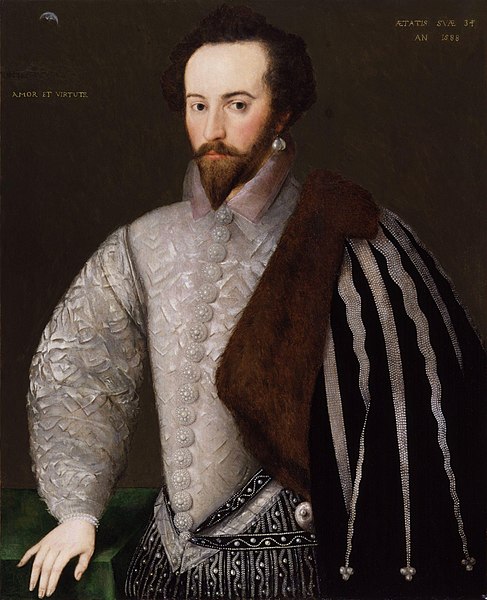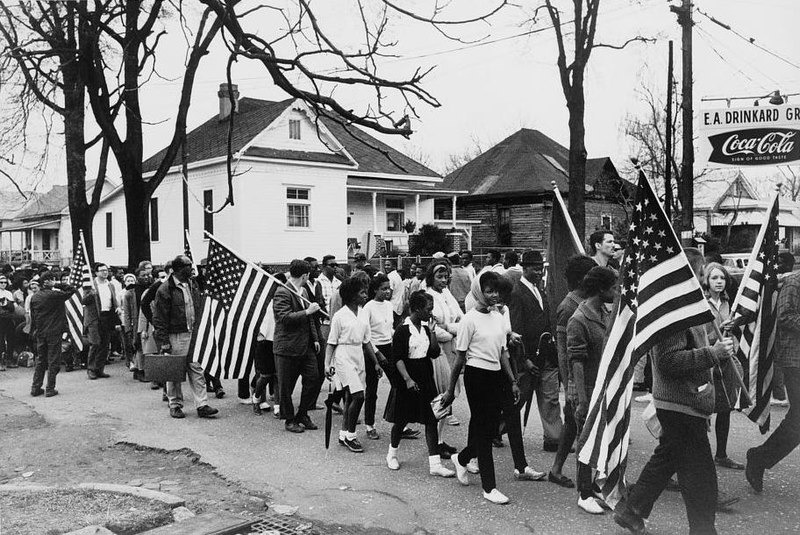March 20th stands out in history, marked by transformative events across various spheres—politics, science, culture, and human rights.
This date reflects our shared heritage, showcasing moments of triumph, innovation, and profound change.
As we delve into the events of March 20th, we embark on a journey through time, exploring the milestones that have significantly influenced our world.
March 20th Events in History
1413 – Henry V becomes King of England following the death of his father Henry IV
Upon the death of his father, Henry IV, Henry V ascended to the throne of England on March 20, 1413. His reign is noted for military successes during the Hundred Years’ War, particularly his victory at the Battle of Agincourt in 1415.
Also Read: March 19 – On this Day in History
This victory made him a hero in English history and significantly raised England’s standing in Europe. Henry V’s achievements in warfare strengthened the monarchy and England’s position in Europe, though his early death in 1422 led to the eventual loss of the territories he gained in France.
1602 – The Dutch East India Company (VOC) is established, becoming the world’s first multinational corporation and the first company to issue stock
The Dutch East India Company, known as VOC (Vereenigde Oost-Indische Compagnie), was chartered on March 20, 1602, to trade with Asia. It was granted a monopoly over Dutch operations in Asia and became the world’s first publicly traded company, issuing shares to finance its voyages.
Also Read: March 21st Events in History
The VOC played a crucial role in the Dutch Golden Age of exploration and trade, establishing colonies and trading posts around the world, including in present-day Indonesia, India, and Sri Lanka. Its success laid the foundations for modern corporate finance and global trading networks.

1616 – Sir Walter Raleigh is freed from the Tower of London after being imprisoned for allegedly plotting against King James I of England
Sir Walter Raleigh, an English explorer, soldier, and writer, was released from the Tower of London on March 20, 1616, after being imprisoned on charges of treason.
Raleigh had been a favorite of Queen Elizabeth I and was known for his expeditions to the Americas and the search for El Dorado, the mythical city of gold.
Despite his release, Raleigh’s freedom was short-lived; he was re-imprisoned and eventually executed in 1618 after a failed expedition to find El Dorado, which led to conflict with the Spanish.
1760 – The Great Fire of Boston destroys 349 buildings
The Great Fire of Boston on March 20, 1760, was a major disaster for the city, destroying 349 buildings and leaving many residents homeless. The fire started in the evening and spread rapidly through the wooden structures of the colonial town.
Despite the efforts of the community to extinguish the fire, it caused significant damage. This event highlighted the dangers of urban fires and led to improvements in fire safety and firefighting methods in the future.
1815 – Napoleon Bonaparte enters Paris after escaping from Elba, beginning his “Hundred Days” rule
Napoleon Bonaparte, having escaped from the island of Elba where he was exiled, entered Paris on March 20, 1815, marking the start of his Hundred Days rule. This period ended the Bourbon monarchy’s restoration following Napoleon’s defeat and abdication in 1814.
His return to power was brief; he was defeated at the Battle of Waterloo in June 1815 and subsequently exiled to the remote island of Saint Helena, where he died in 1821. Napoleon’s return sparked a final coalition of European powers against him and left a lasting legacy on European politics and military strategy.
1852 – Harriet Beecher Stowe’s “Uncle Tom’s Cabin” is published, influencing the anti-slavery movement in the United States
On March 20, 1852, Harriet Beecher Stowe’s novel “Uncle Tom’s Cabin” was published, and it quickly became a bestseller. The novel depicted the harsh realities of slavery in the United States and humanized the suffering of enslaved African Americans.
Stowe was inspired to write the novel by the Fugitive Slave Act of 1850, which made assisting runaway slaves a crime. “Uncle Tom’s Cabin” played a significant role in stirring anti-slavery sentiment in the North and is credited with helping to fuel the abolitionist movement, making a considerable impact on American public opinion and laying the groundwork for the Civil War.

1854 – The Republican Party of the United States is organized in Ripon, Wisconsin
The foundation of the Republican Party in the United States is traced back to a meeting on March 20, 1854, in Ripon, Wisconsin. The party was established by anti-slavery activists, ex-Whigs, and ex-Free Soilers in response to the Kansas-Nebraska Act, which allowed for the expansion of slavery into new territories.
The party’s main aim was to oppose the spread of slavery into the American territories, advocating for “Free Soil, Free Labor, Free Men.” The Republican Party quickly grew in prominence, leading to the election of Abraham Lincoln as the first Republican President in 1860, which in turn precipitated the American Civil War.
1883 – The Paris Convention for the Protection of Industrial Property is signed
The Paris Convention, signed on March 20, 1883, was one of the first intellectual property treaties. It established a union for the protection of industrial property, including patents, trademarks, industrial designs, and service marks.
The convention allowed for national treatment of foreigners seeking to protect their intellectual property and introduced the concept of priority right, which gave an applicant from a member country the right to use the date of the first application in one country as the effective date in another.
This agreement laid the foundational principles for international intellectual property laws and facilitated the global protection of intellectual innovations.
1899 – Martha Place becomes the first woman executed in the electric chair, at Sing Sing Prison in New York
Martha Place, convicted of murdering her stepdaughter, became the first woman to be executed in the electric chair on March 20, 1899, at Sing Sing Prison in New York. Her execution marked a grim milestone in the history of capital punishment in the United States.
The case attracted significant media attention and sparked debates about the morality and effectiveness of the death penalty, especially concerning female convicts. Place’s execution is often cited in discussions of gender and the death penalty in the United States.
1916 – Albert Einstein publishes his general theory of relativity
On March 20, 1916, Albert Einstein published his general theory of relativity, a groundbreaking scientific theory that transformed our understanding of physics and the universe. This theory extended the special theory of relativity (1905) by incorporating gravity as a property of the geometry of space and time, or spacetime.
It introduced the revolutionary concept that massive objects cause a distortion in spacetime, which is felt as gravity. Einstein’s theory has been confirmed through numerous experiments and observations, including the bending of light by gravity and the prediction of black holes, fundamentally altering our comprehension of the universe’s workings.
1933 – Giuseppe Zangara is executed in the electric chair in Florida for the assassination of Chicago Mayor Anton Cermak, an attack that was intended for President-elect Franklin D. Roosevelt
Giuseppe Zangara attempted to assassinate President-elect Franklin D. Roosevelt on February 15, 1933, in Miami, but instead fatally wounded Chicago Mayor Anton Cermak, who died on March 6, 1933. Zangara’s motives were rooted in his personal grievances against political leaders, whom he blamed for his physical and financial hardships.
Zangara was quickly tried, convicted, and sentenced to death. His execution on March 20, 1933, just over a month after the assassination attempt, was one of the swiftest in American legal history. The event underscored the vulnerabilities of public figures and led to increased security measures for protecting high-ranking officials.
1956 – Tunisia gains independence from France
Tunisia achieved independence from France after more than 75 years as a French protectorate. The struggle for independence was primarily led by the Neo Destour party and its leader, Habib Bourguiba, who later became the country’s first President.
The movement towards independence began after World War II, fueled by growing nationalist sentiment and demands for self-determination.
The peaceful transition to independence was significant in the wave of decolonization that swept through Africa in the mid-20th century, marking a critical moment in the end of European imperial rule in North Africa.

1965 – President Lyndon B. Johnson orders 4,000 troops to protect the Selma to Montgomery civil rights marchers
In response to violent attacks against civil rights demonstrators in Selma, Alabama, President Lyndon B. Johnson ordered federal troops and National Guardsmen to protect the marchers on their journey from Selma to Montgomery.
This decision came after “Bloody Sunday,” where peaceful protesters were brutally beaten by law enforcement as they attempted to cross the Edmund Pettus Bridge.
The televised violence shocked the nation and galvanized support for the civil rights movement. The successful march, protected by federal forces, significantly contributed to the passing of the Voting Rights Act of 1965, landmark legislation aimed at overcoming legal barriers at the state and local levels that prevented African Americans from exercising their right to vote.
1974 – An attempt is made to kidnap Princess Anne in London, which she famously rebuffed saying “Not bloody likely!”
On March 20, 1974, Princess Anne and her husband, Captain Mark Phillips, were returning to Buckingham Palace when their car was forced to stop by a gunman aiming to kidnap the Princess.
The assailant, Ian Ball, intended to ransom her for millions of pounds. In the ensuing confrontation, several people were injured, but the Princess’s calm and defiant demeanor, notably her refusal to get out of the car, thwarted the kidnapper’s plans.
Her bodyguard and a passing pedestrian bravely intervened, helping to capture Ball. The incident highlighted security vulnerabilities around the royal family and led to changes in royal protection protocols.
1987 – The food additive Aspartame is approved by the FDA after being deemed safe for consumption
Aspartame, a low-calorie artificial sweetener used in many foods and beverages, was reapproved by the U.S. Food and Drug Administration (FDA) on March 20, 1987, after a thorough investigation into concerns about its safety.
Initially approved in 1974, its use was suspended due to health concerns and allegations of procedural errors during the approval process. However, after extensive reviews, including studies on its potential carcinogenic effects, the FDA concluded that aspartame was safe for human consumption within the recommended limits.
This decision was supported by other international health agencies, including the World Health Organization, and aspartame remains one of the most widely used artificial sweeteners globally.
1995 – The sarin gas attack on the Tokyo subway kills 13 and wounds over a thousand people
On March 20, 1995, members of the Aum Shinrikyo cult executed a coordinated terrorist attack on the Tokyo subway system, releasing sarin gas, a potent nerve agent, during the morning rush hour. The attack killed 13 people, severely injured over 50, and caused temporary vision problems for nearly 1,000 others.
This act of domestic terrorism shocked Japan and the world, highlighting the potential for non-state actors to engage in mass-casualty attacks.
It led to a nationwide crackdown on the cult, changes in Japan’s approach to domestic security and counter-terrorism, and increased global awareness of the threat posed by chemical weapons in the hands of extremists.
2003 – The United States, along with coalition forces, begins the invasion of Iraq
The invasion of Iraq, known as Operation Iraqi Freedom, commenced on March 20, 2003. The United States, supported by a coalition of other countries, launched a military campaign to overthrow the government of Saddam Hussein.
The invasion was justified by the U.S. and its allies with claims that Iraq possessed weapons of mass destruction (WMDs) and posed a threat to international security, though such weapons were never found.
The conflict resulted in significant loss of life, displacement of millions, and long-term instability in the region. The Iraq War has had a profound and lasting impact on international relations, global security policies, and perceptions of the United States around the world.
2015 – A Solar eclipse, equinox, and a Supermoon all occur on the same day
On March 20, 2015, a rare celestial event occurred where a total solar eclipse, the March equinox, and a Supermoon (a full or new moon that is at its closest point to Earth in its orbit) all happened on the same day. This alignment of astronomical events attracted significant attention from scientists, astronomers, and the general public alike.
The solar eclipse was visible across parts of Europe, North Africa, and Asia, offering a unique spectacle for observers and providing valuable opportunities for scientific research and education about the dynamics of celestial bodies.
2016 – Barack Obama becomes the first sitting U.S. President to visit Cuba in 88 years
President Barack Obama’s visit to Cuba in March 2016 marked a historic moment in the relationship between the United States and Cuba, symbolizing a move towards normalizing relations after decades of Cold War hostility.
This visit was part of a broader effort by the Obama administration to ease economic and diplomatic tensions with Cuba, including easing travel restrictions and taking steps to lift the trade embargo. The visit underscored a significant shift in U.S. foreign policy towards Cuba and was seen as a step towards reconciliation and dialogue after years of estrangement.
2020 – For the first time in its 124-year history, the Boston Marathon is postponed due to the COVID-19 pandemic
he Boston Marathon, one of the world’s oldest and most prestigious annual marathons, was postponed for the first time in its history due to the global outbreak of COVID-19.
Originally scheduled for April 20, 2020, the event was initially postponed to September before ultimately being held as a virtual event where participants ran the marathon distance individually and submitted their times.
This decision reflected the widespread impact of the COVID-19 pandemic on large public gatherings and sporting events around the world, highlighting the challenges of organizing mass participation events during a global health crisis.
